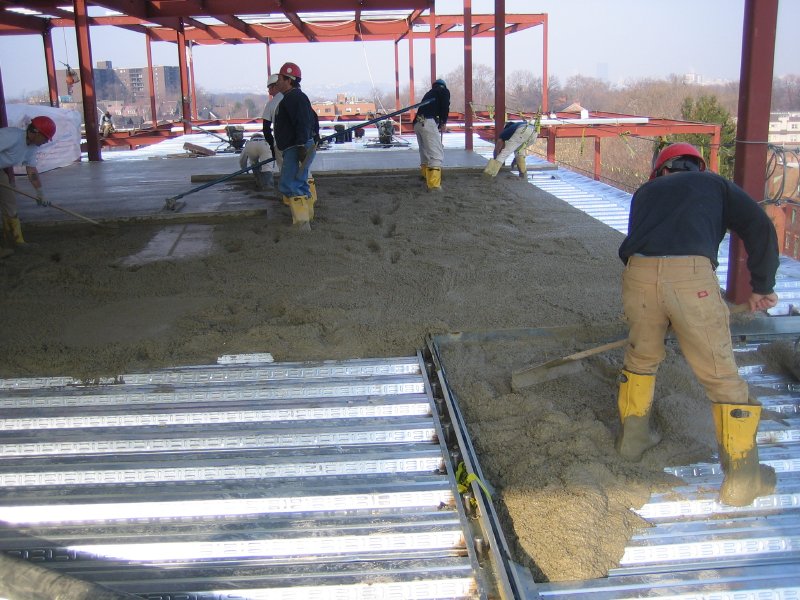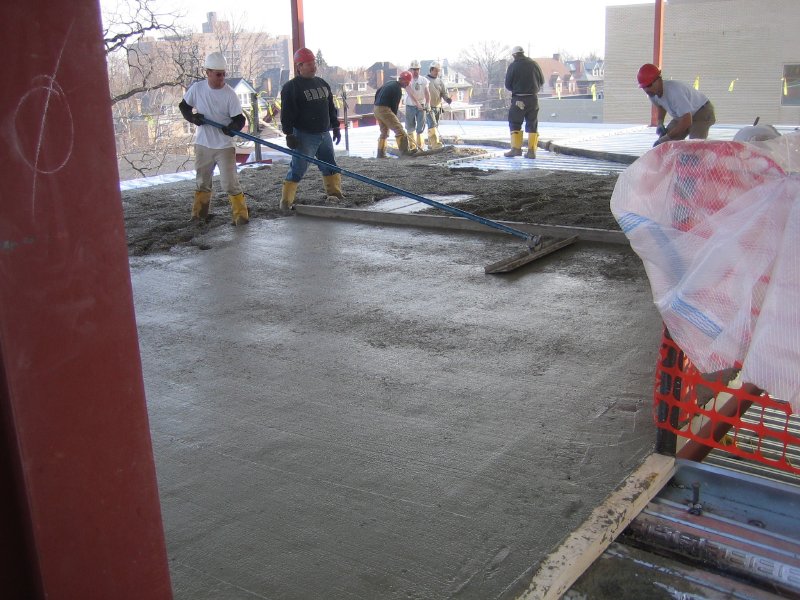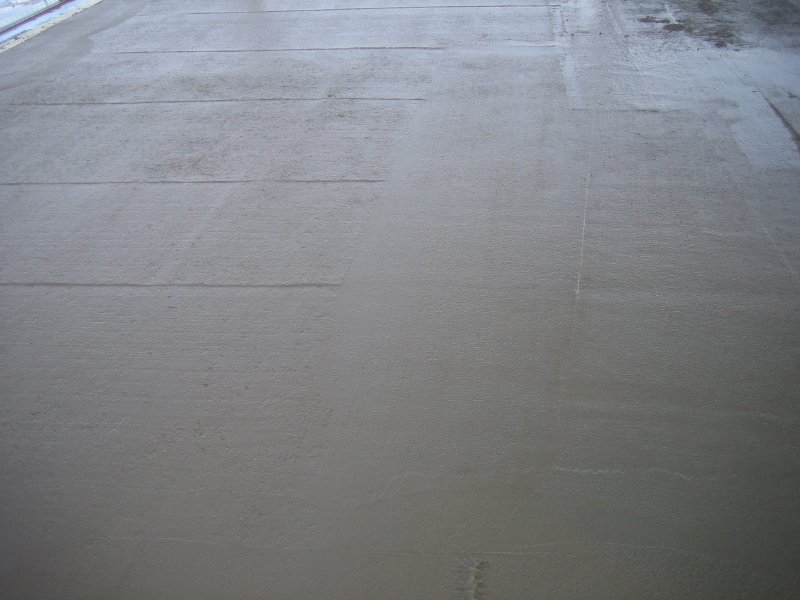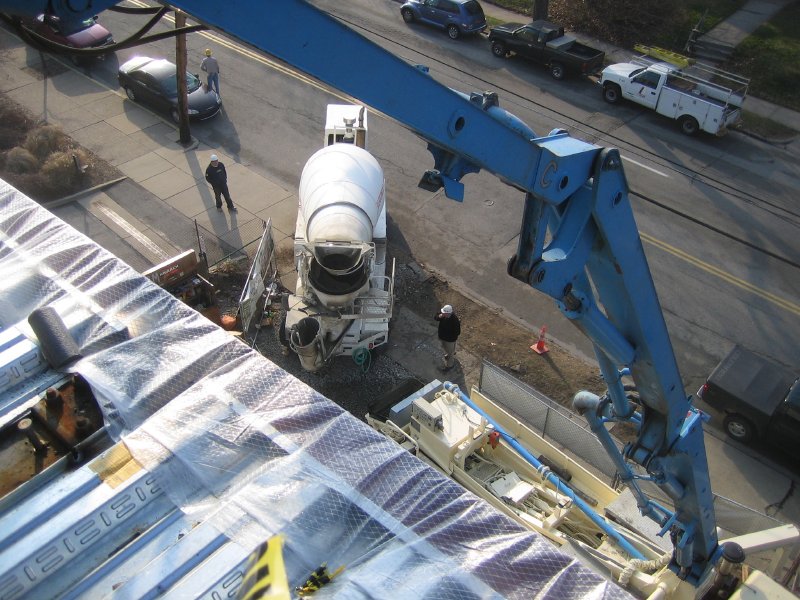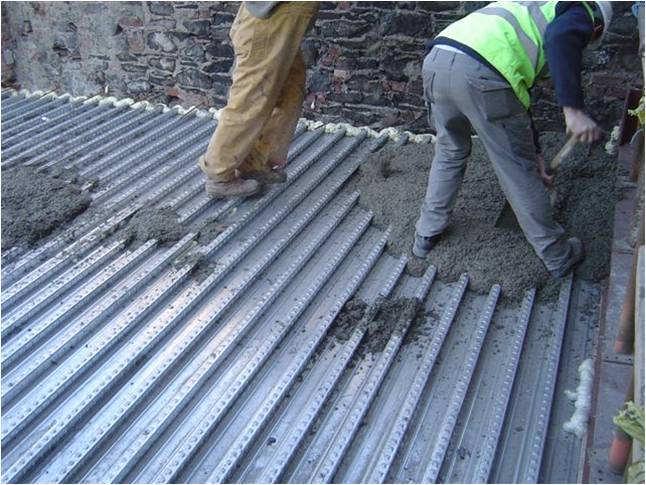Metal Deck with Barchip Synthetic Fiber Concrete Reinforcement
Steel Deck Concrete Slab Reinforced with Barchip Synthetic Fiber Concrete Reinforcement.
In February of 2006 Barchip worked with Stone and Company from Pittsburgh PA to help create an alternate design for slabs on metal decks and slab on grade using BarChip synthetic fiber concrete reinforcement in place of traditional steel reinforcement.
After extensive testing, the owner and engineers Stone and Company were convinced of the performance and benefits offered by BarChip synthetic fibers and the contractor was given the green light to proceed with the alternate design using fibers.
Barchip reinforced concrete is delivered to site ready mixed, saving the contractor time and labour by eliminating the need to hoist and place steel mesh, set chairs, and place rebar. The contractor also was impressed because he did not change any part of his placement procedures by using Barchip with the exception of not having to deal with the steel rebar and welded wire mesh.
By replacing crack control mesh with BarChip fiber reinforcement, Sure and Company achieved their goal of faster construction times while at the same time reduced costs and increased concrete durability.

Comparative testing shows that Barchip synthetic fiber concrete reinforcement outperforms steel mesh in regular strength concrete. This increased ductility is a result of the fibers being mixed throughout the entire concrete, providing reinforcement at the exact point it’s needed.

